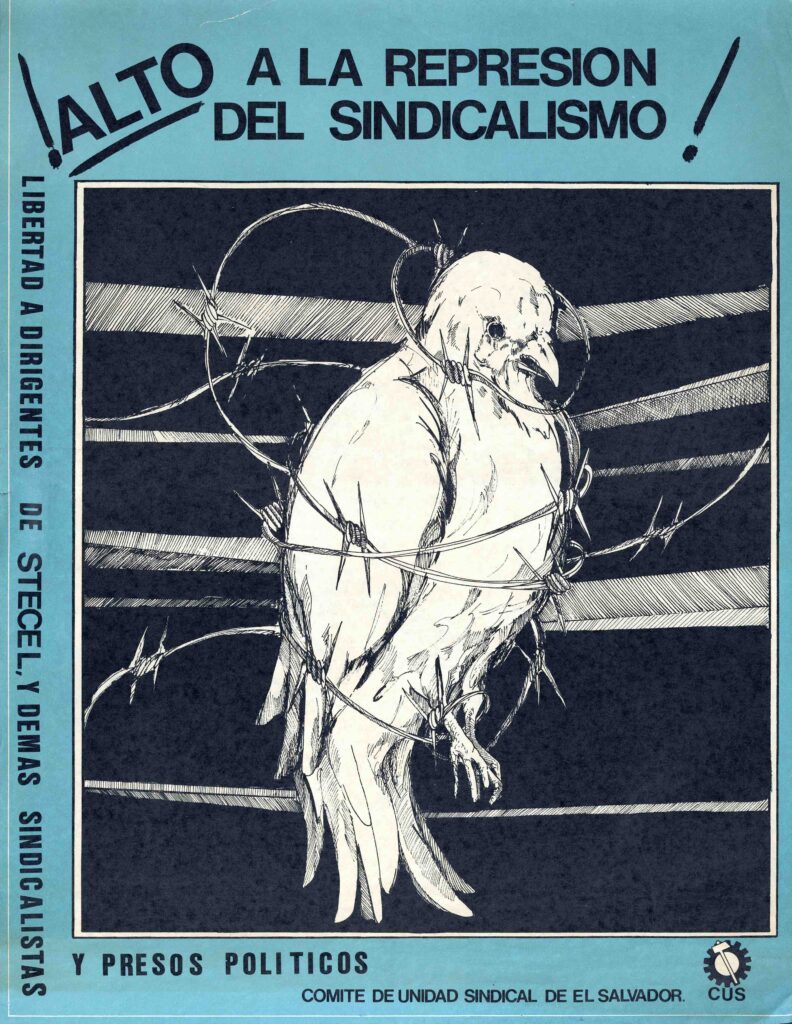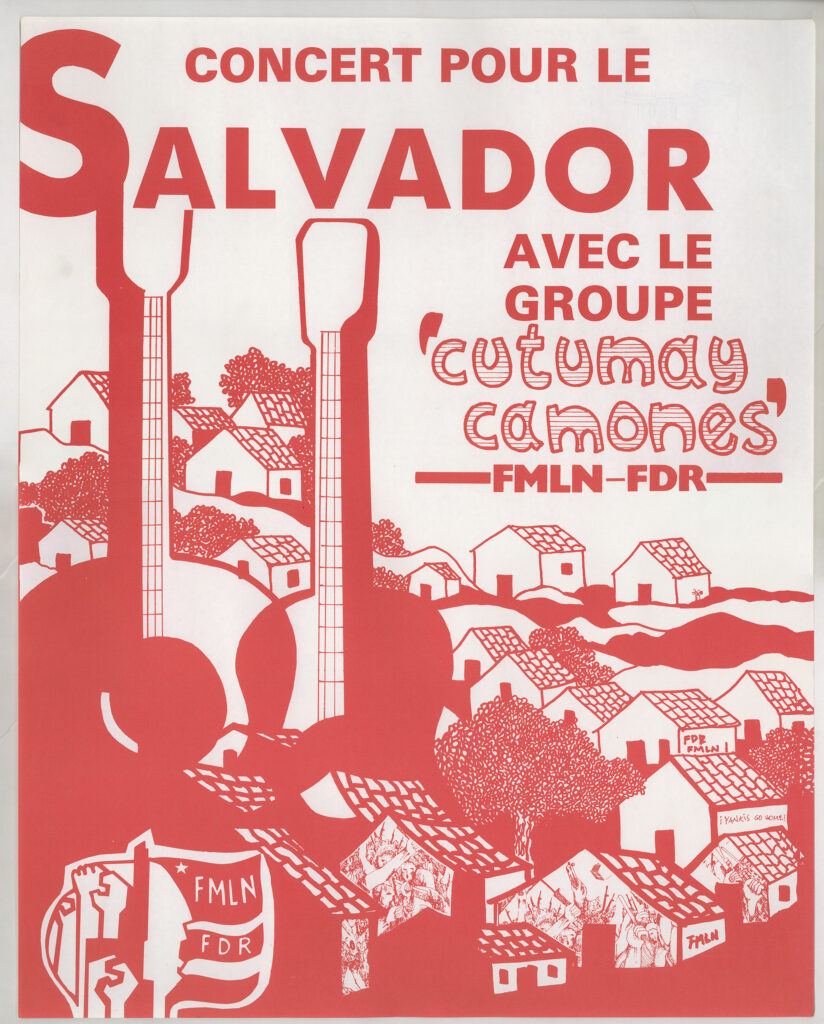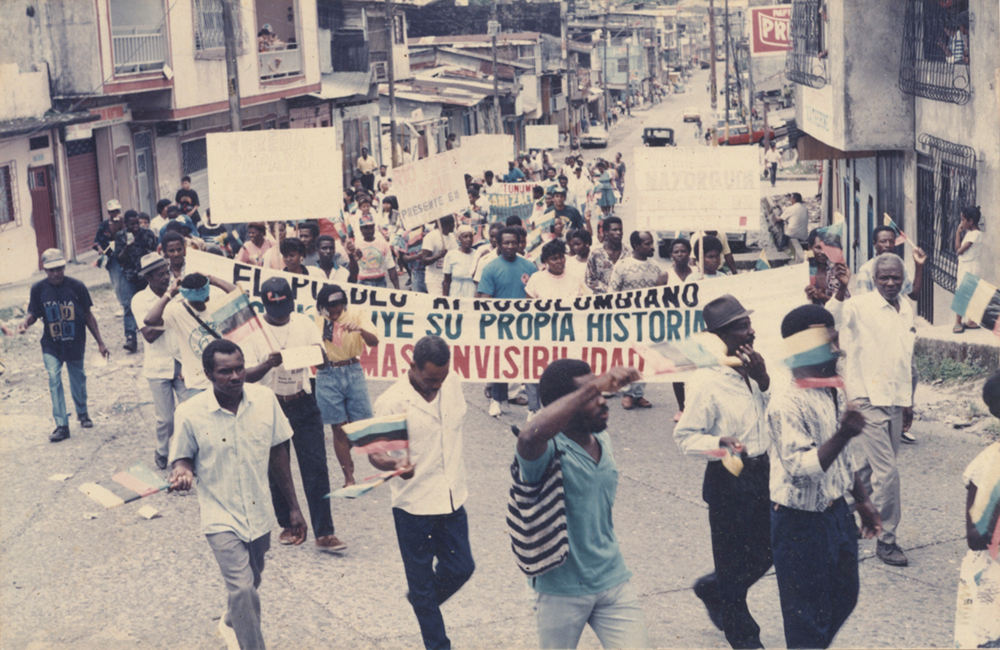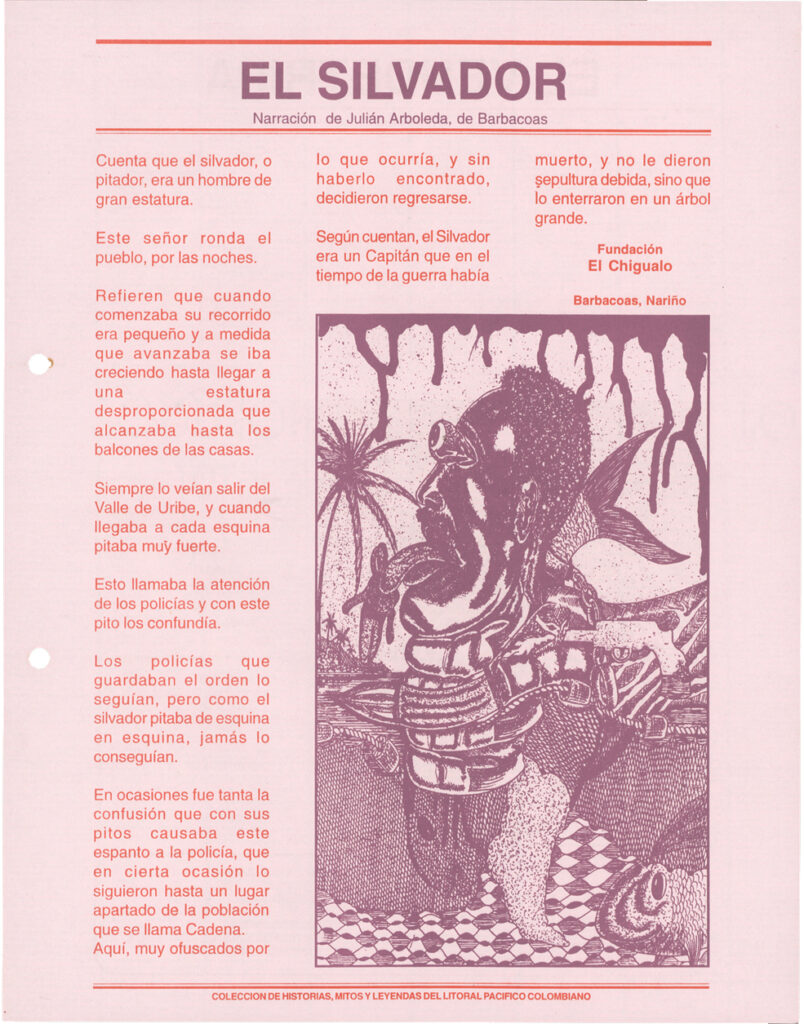BY DAVID A. BLISS
THE LATIN AMERICAN DIGITAL INITIATIVES (LADI) website holds archival collections from six of the Benson’s post-custodial archival partner organizations in Latin America. Beginning in 2014, Benson archivists worked with partner institutions to digitize and describe collections from partners’ repositories, in order to facilitate online access to the materials without physically relocating them. The first version of the LADI repository launched in 2015 and featured collections from three archival partners, in Nicaragua, Guatemala, and El Salvador, with a focus on historically underdocumented voices and communities. The website underwent a complete redesign and infrastructure upgrade from 2017 to 2020, and added three additional collections from partners in Brazil, Colombia, and Mexico.
The collections found in LADI span from central Mexico to southeastern Brazil, and include documents from the 1570s to the twenty-first century. The variety of materials found in these collections reflects the ethnic and social diversity of Latin America. At the same time, the collections speak to common struggles for political self-determination, social equality, and environmental justice that reach across temporal and geographic boundaries. Presenting these collections in a shared repository makes it possible to draw these connections explicitly, and we hope our work will not only help researchers, but also the communities to which the materials belong.
Collection Highlight — Afiches de la Colección Conflicto Armado
Museo de la Palabra y la Imagen, San Salvador, El Salvador

This collection from the Museo de la Palabra y la Imagen (Museum of the Word and the Image, MUPI)1 in San Salvador, El Salvador, contains posters (afiches) produced by insurgent groups, armed forces, and solidarity groups, primarily protesting U.S. intervention in El Salvador’s armed conflict, which took place between 1979 and 1992. The bulk of the posters were printed during the conflict, however the full collection spans from 1978 to 2006, and includes posters promoting post-conflict remembrance events.
The posters in this collection are visually striking and highly varied, calling attention to ongoing injustices, encouraging the viewer to support the fight of the Frente Farabundo Martí para la Liberación Nacional (Farabundo Martí Front for National Liberation, FMLN) against the military dictatorship, and demanding an end to U.S. military support for the latter.

The posters demonstrate the variety of groups within El Salvador that resisted the government during the armed conflict, as well as the extent of the international solidarity movement that worked to oppose the U.S. and other governments that supported the military regime. With its evocative illustration of a dove surrounded by barbed wire, the poster demands a stop to the repression of trade unions, and calls for an end to political imprisonment and the release of the leaders of the Sindicato de Trabajadores de la Electricidad de la Central Eléctrica del Rio Lempa (STECEL), an electrical workers’ labor union, who were arrested by the Salvadoran government in 1980.
In addition to posters from El Salvador itself, the collection contains several dozen posters from the United States, France, Germany, the Netherlands, and Italy. These posters are a rich resource for users interested in the Salvadoran armed conflict specifically, as well as Latin American anti-imperialist activism more broadly.
Collection Highlight — Colección Dinámicas Organizativas del Pueblo Negro en Colombia
Proceso de Comunidades Negras, Buenaventura, Colombia
This collection2 contains a wide variety of photographs, publications, and organizing documents created and gathered by the Proceso de Comunidades Negras (PCN), a collective of Afro-Colombian organizations that formed in the early 1990s. PCN fights for the economic, territorial, and political rights of Afro-Colombians, and the materials in the collection reflect the breadth of this work.

Colombia’s 1991 constitution was the first to officially recognize the multiethnic nature of the country, and subsequent laws provided certain recognition and protections for various ethnic groups, including Afro-Colombians. Many of the publications in this collection gather ethnographic information about the communities involved in PCN’s work, in support of their claims to distinct historical identities that warrant legal recognition. As such, the collection is invaluable for anyone interested in teaching or learning about these communities. The 1978 publication Colección de Historia, Mitos y Leyendas del Litoral Pacífico Colombiano (Collection of History, Myths and Legends from the Colombian Pacific Coast), for example, gathered stories from Colombia’s Pacific Coast, where the Afro-Colombian population is most heavily concentrated.

At the same time, the collection also contains hundreds of photos and documents that record PCN’s organizational activities from the late 1980s to the 2000s. A photograph from 1992, shows a demonstration in Buenaventura, Valle del Cauca, demanding that the Colombian government implement the protections for Afro-Colombian communities it had guaranteed in the 1991 constitution. A year after these demonstrations, Colombia passed the Ley 70 de 1993, recognizing Afro-descendants’ territorial claims. Yet fundamental change in land rights is still elusive for Afro-Colombian communities. These materials show how PCN developed and sustained its network of member organizations, how members forged strategic links with indigenous rights organizations, and how organizational priorities were decided upon. They speak to PCN’s unique structure and vital work on behalf of communities throughout Colombia, and will be of great interest to activists and researchers of social movements in Latin America.
David A. Bliss is the digital processing archivist at LLILAS Benson Latin American Studies and Collections. He manages post-custodial projects at partner sites in Latin America, as well as processing and preservation for the Benson’s digital collections.
The LLILAS Benson post-custodial project team is made up of Theresa Polk, head of Digital Initiatives and post-custodial archivist; Itza Carbajal, Latin American metadata librarian; and David Bliss, digital processing archivist. Graduate research assistants contributing to this project were Alejandra Martinez and Elizabeth Peattie. The LADI platform was developed by Minnie Rangel, senior software developer/analyst at the University of Texas Libraries, and the development was managed by Jade Diaz, lead Agile Scrum master.
Notes
1. Colección Conflicto Armado. Afiches. (Armed Conflict Collection. Posters.) Available at ladi.lib.utexas.edu/en/mupi01.
2. Colección Dinámicas Organizativas del Pueblo Negro en Colombia (Organizational Dynamics of Black People in Colombia Collection). Available at ladi.lib.utexas.edu/en/pcn01.
